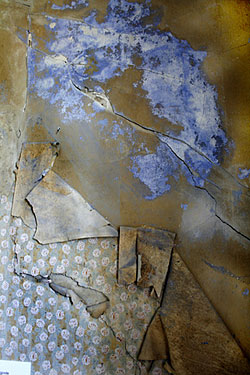WORLD ORDER AND GOVERNANCE
We live in a globalizing world. One characteristic of our current world structure is that corporate and military leaders think and act globally whereas people in the spheres of politics, media and education to a large extent - with some exceptions - are still stuck in the nation-state perspective.Objectively speaking, therefore, what happens in parliaments in the world's capitals decides less and less the future of the citizens living in that country. Trans-national, supra-national and regional actors, amongst others, increasingly set the parameters and the tone. From above.
From below, also, we increasingly see the nation-state being undermined. Citizens engage more and more in inter-national and global networks and do so directly, not via national organizations. Change-oriented movements link up with each other and take actions that challenge not only their own governmental institutions but also those of other states. Authoritarian leaders fall, oftentimes not because of bombs from above but because of citizen's critical mass. From below.

All this is happening in a period of human history that is exhibiting no less than five major, globally encompassing and mutually related crises, namely in: Militarism, Culture, Economy, Politics/Democracy and the Environment.
Simultaneously, a huge re-structuring is occurring: away from a US/Western-based world order and towards a much more multi-polar, regionalized and to a certain extent Asia/China-focused world order. The fall of the US Empire and what would probably fall with it, such as NATO, is not a matter of "if", only of "when".
It can safely be said that never before have so many people been in need of globally oriented decision-making structures and visionary leadership as at the beginning of the 21st century. Regrettably, however, the lack of vision beyond the 4-year election term in democracies, the focus on the local "tribe" in a broad sense - including nationalist limitations - and the undermining of vitally important common institutions such as the United Nations, are perhaps more evident than at any time since 1945.
The urgent need to seek solutions for the common good of all humankind and of future generations seems to go unnoticed, or the capacity to find such solutions is diminishing - perhaps because the complexity of world affairs has grown out of proportion to human management and decision-making capabilities.
People often refer to lack of "political will" - as if the intellectual recognition were present amongst decision-makers although the will to act is not. Fundamentally, most "leaders" seem to have neither the insights, nor the structures to bring about the necessary change within the - tight - timeframe that these exponentially growing global problems and their negative synergy force upon us. And some, of course, find it in their personal interest to maintain the status quo.
TFF Associates and many others are grappling intensely with which future global order is desirable - assuming that we can still choose. Will we choose enlightened, orderly change for a better world or shall we witness a series of violent dissolution processes and the emergence of "iron regimes" and strongmen? How can we imagine a global governance system that will not just develop into some kind of dictatorial world government by the few?
Without the ability to imagine a better world we doubt that it'll be possible to bring about the desired changes. One thing is oftentimes obvious: what those in power call "realistic" isn't - and what they ridicule as "unrealistic" might very well be the most promising areas in which to invest our hopes and energies. History has always been full of surprises and "black swans". We need more of those for the common good to prevail.



 Get Free Email Updates
Get Free Email Updates Support this site
Support this site Feedback
Feedback About this website
About this website